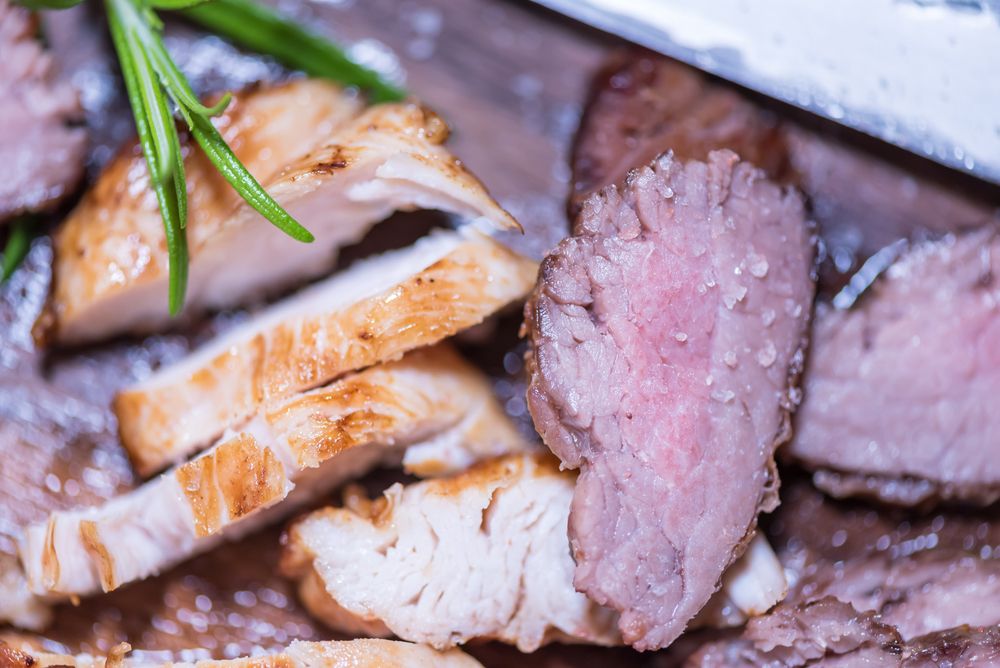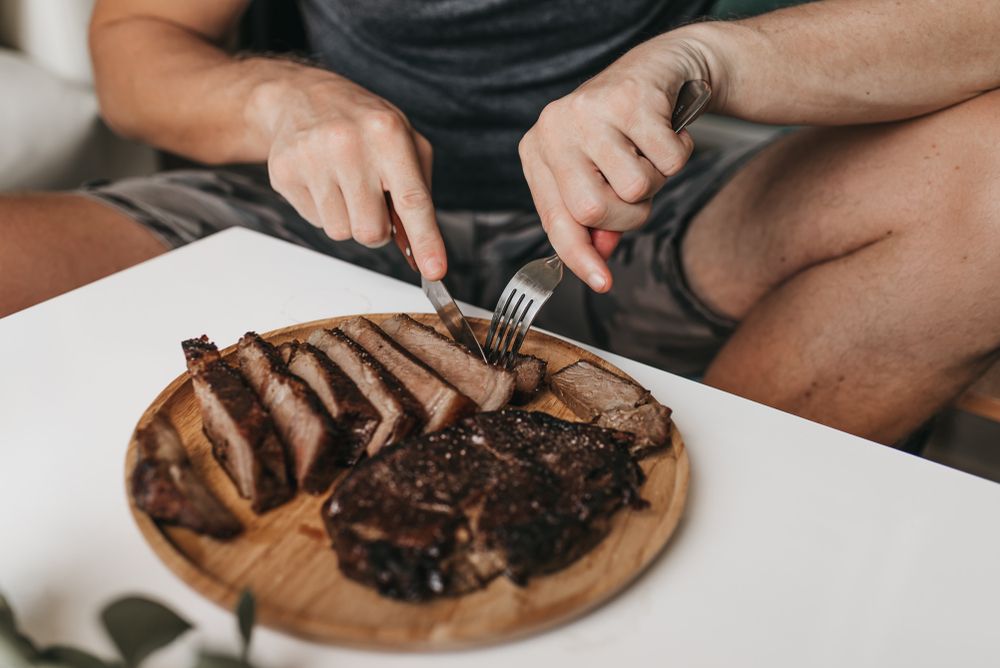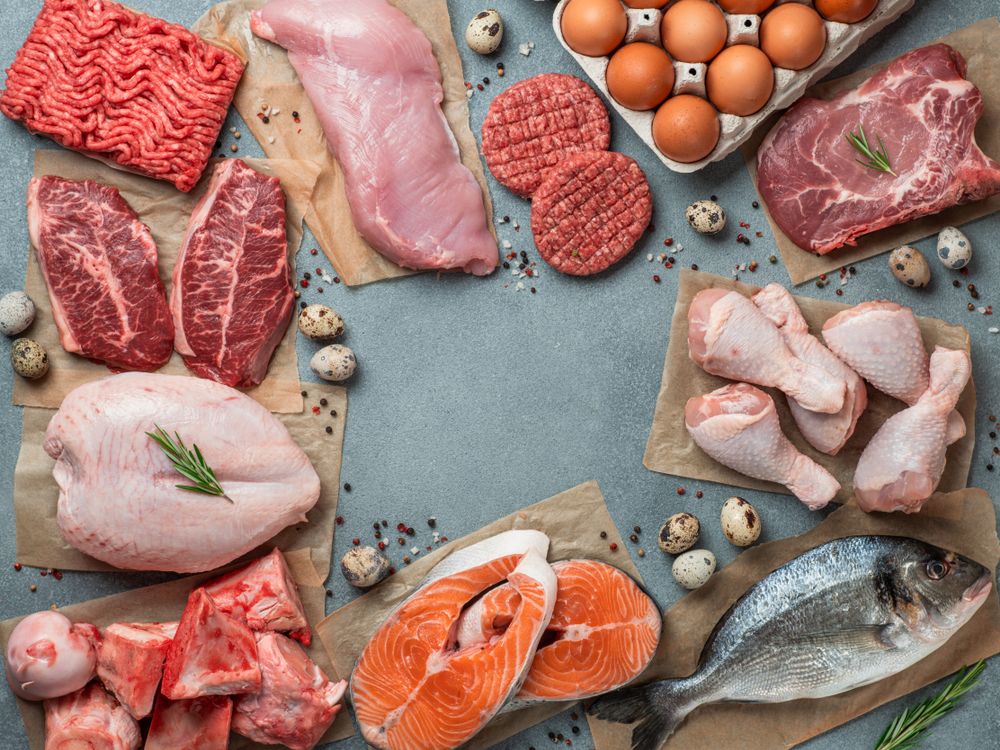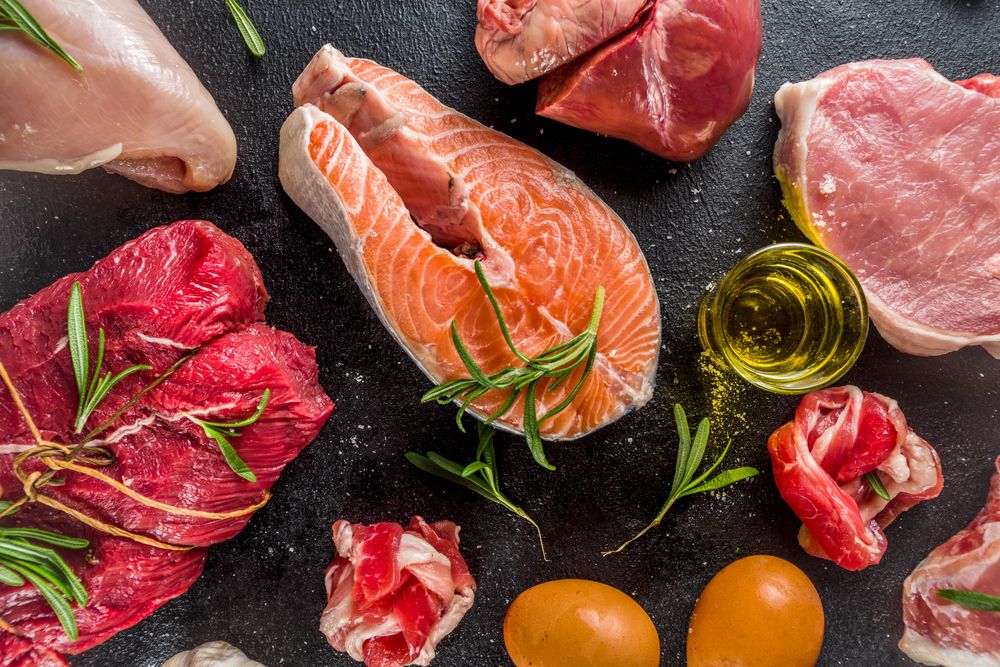
The carnivore diet is making waves in the weight loss community. Consisting solely of animal products, this diet has garnered a significant online following for its promises of rapid weight loss and other purported health benefits, such as reduced inflammation, improved gut health, and enhanced mental clarity. But does the carnivore diet live up to the hype? To find out, we consulted registered dietitians to get their insights on this growing trend.
As with any diet trend, it's crucial to look beyond the hype and examine the facts. The carnivore diet appeals to many because of its straightforward approach to eating, eliminating the need for calorie counting, meal planning, or worrying about macronutrient ratios. Instead, followers simply consume meat, fish, and animal products exclusively. However, the simplicity of the carnivore diet also raises questions about its nutritional adequacy, health benefits, and long-term sustainability.
While supporters of the carnivore diet report anecdotal weight-loss success, medical experts and nutritionists advise caution. Excluding plant-based foods can lead to potential nutrient deficiencies, such as fiber, vitamins, minerals, and antioxidants essential for overall health. Additionally, the high intake of saturated fats and cholesterol from animal products can pose risks to heart health and other chronic conditions.
Now, let's explore what foods you can eat on the carnivore diet, its potential benefits and drawbacks, and whether or not it can effectively help you lose weight.
What is the carnivore diet, and how does it work?
The carnivore diet is a highly restrictive eating plan where only animal-based foods are consumed, including meat, fish, eggs, and small amounts of dairy products. The idea behind this diet is that eliminating all plant-based foods reduces inflammation, improves digestion, and supports overall health. Proponents believe that focusing on nutrient-dense animal products and avoiding potential irritants found in plants can lead to weight loss and other health benefits.
Destini Moody, RDN, CSSD, LD, a registered dietitian and sports dietitian with Garage Gym Reviews, explains, "The justification behind the carnivore diet is that we are meant to eat like our ancestors, who did not have access to the modern farming we have today. This means they did not have access to high-carbohydrate foods that are mainly composed of plants. Thus, it's believed that our ancestors ate exclusively meat and fish and were healthier than today's standard American diet, which is full of processed foods and carbohydrates."
What foods can you eat on the carnivore diet?
The primary foods allowed on the carnivore diet include various meats such as beef, pork, lamb, and poultry, along with fish and seafood. Eggs are a staple, and some people include limited dairy products like butter, cheese, and cream. Organ meats like liver and heart are also acceptable due to their high nutrient content.
Moody adds, "Some of the most dedicated carnivore diet followers insist on drinking raw milk that has not been pasteurized, reflecting the food safety practices—or lack thereof—available to our ancestors."
Is the carnivore diet safe?

Some experts argue that the carnivore diet can lead to nutrient deficiencies due to the absence of plant-based foods, which provide essential vitamins and minerals. Additionally, the high intake of saturated fats and cholesterol could jeopardize heart health. However, some individuals report anecdotal improvements in certain autoimmune conditions and weight loss after adopting the carnivore diet.
"A potential benefit of the carnivore diet is that it eliminates all carbohydrates, grains, and other items that could cause food sensitivities or lead to overeating," says Gianna Masi, CPT, RDN, a certified personal trainer and registered dietitian with Barbend. "Additionally, consuming a high-protein diet like the carnivore diet is important for health, muscle, and longevity. However, potential risks include overconsuming saturated fats and raising LDL cholesterol levels."
Does the carnivore diet help you lose weight?

The carnivore diet is high in protein and fats, which research shows are more satiating, meaning they fill you up faster and reduce the likelihood of overeating. However, the long-term sustainability and health effects of the carnivore diet have not been well studied, and its restrictive nature may make it challenging for some people to maintain over time.
Ultimately, the best approach to healthy weight loss involves eating a balanced, well-rounded diet while maintaining a slight caloric deficit and exercising regularly.
"Any diet or lifestyle change that helps someone achieve a caloric deficit will aid in weight loss," says Masi. "While the carnivore diet can be effective for weight loss, I don't promote it as a dietitian because of the lack of fiber and diversity from other food sources that support good overall health."

